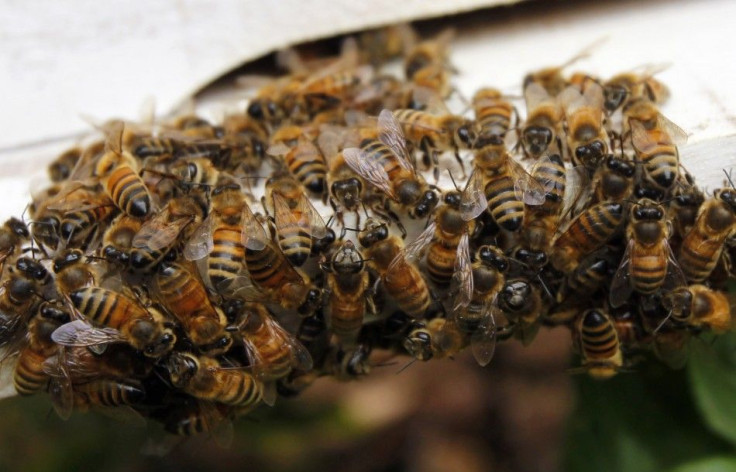Zombie Bees: Impacts Third of U.S. Food Supply, May Explain Bee Die-off

Zombie bees may the reason why the flower pollinators worldwide are dying off, scientists said Thursday.
Researchers found a parasitic fly hijacks bees' bodies, causes them to abandon their hives and wander around in a zombie-like state with little to no direction. Infected bee leave their hives at night and die shortly afterwards.
Snicker if you will at Night-of-the-Living-Dead bees, but pollination from bees supplies a third of the food in the U.S. and are crucial for agriculture.
For decades, bees have suffered from Colony Collapse Disorder, a poorly-understood syndrome where worker bees abandon their hives and die, leaving researchers scratching their heads.
Scientists put forth several hypotheses to explain the bee demise: malnutrition, disease, agricultural chemicals, antibiotics and even increases in electromagnetic radiation from electrical lines.
The latest results, published Tuesday in the journal PLoS ONE, give researchers another possible mechanism for the bee die-off.
The parasite could be another stressor, enough to push the bee over tipping point. Or it could play a primary role in causing the disease, John Hafernik, biologist with the San Francisco State University and lead investigator, told USA Today.
The zombifying fly, Apocephalus borealis, is found across North America and was found in three quarters of the 31 hives examined across San Francisco by the research team.
The research came about by accident after Hafernik left some bees in a jar and found them a week later, dead surrounded by fly pupae.
Hafernik said his team will next explore other regions across the U.S. to search how the fly affects bees in other parts of the country.
© Copyright IBTimes 2024. All rights reserved.











